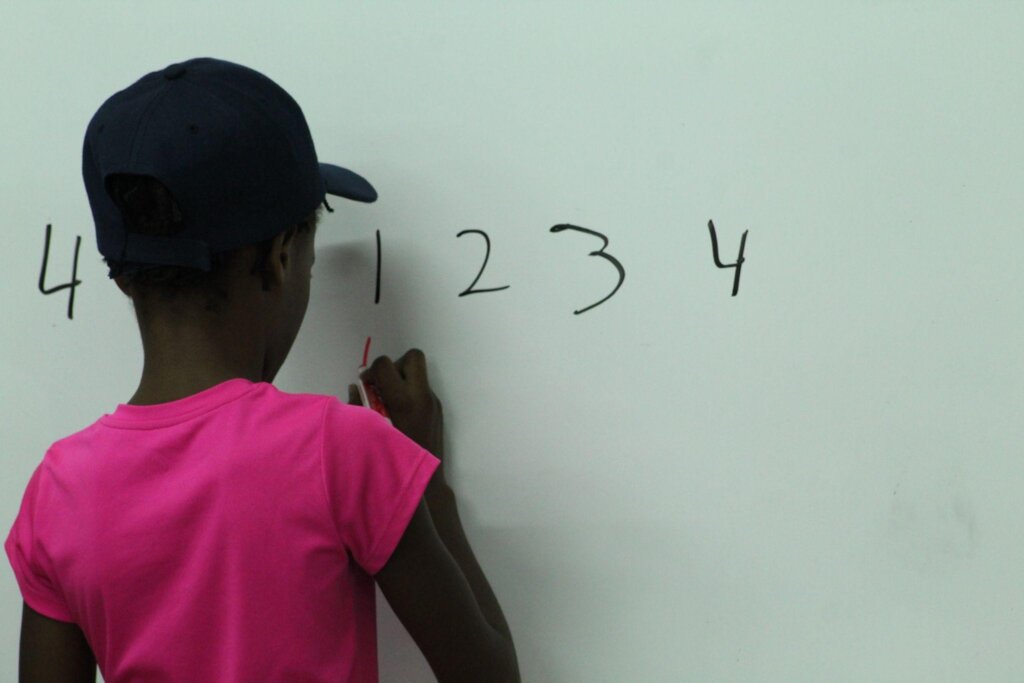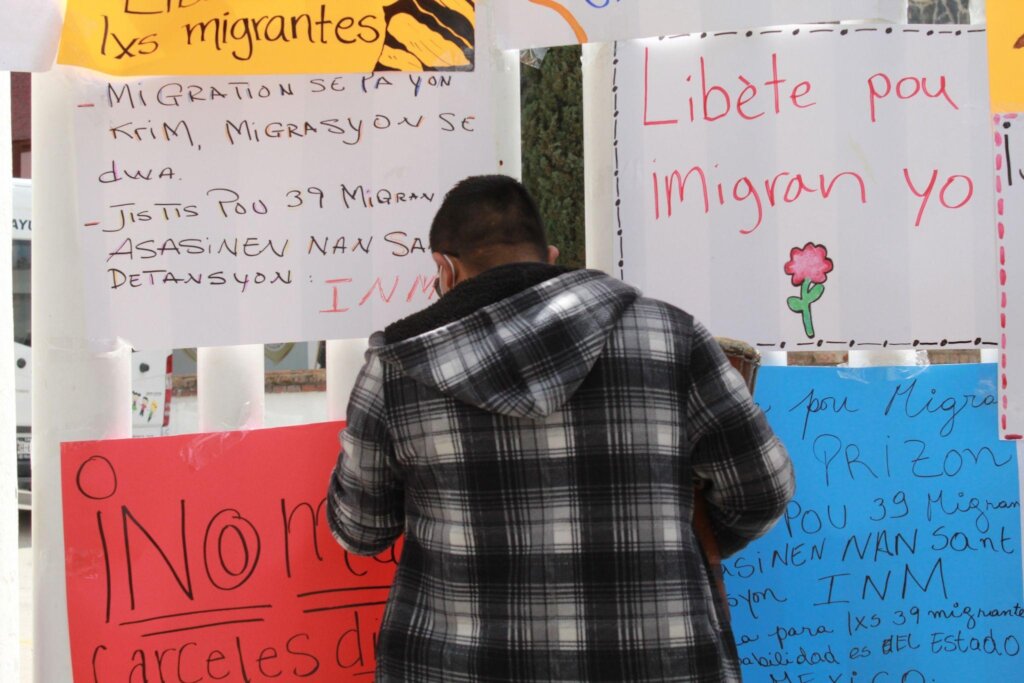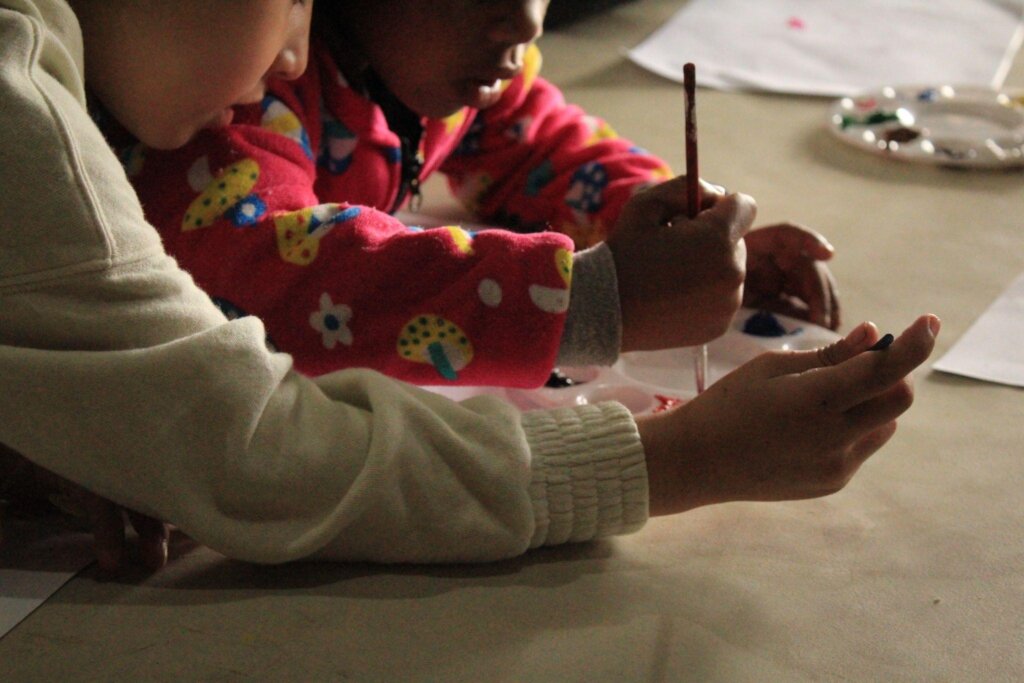By Ana Godinez | Project Leader
The migration crisis in Mexico is reaching a critical point. While migration has always been a part of the region’s history, the challenges faced by people who are migrating have become increasingly severe in recent years. In this sense, grassroots organizations have reported a worsening of measures against the migrant population in recent months.
In the northern border, Tijuana has witnessed an increase in deportations, overcrowded shelters, and a strong presence of armed forces under the pretext of "safeguarding and protecting" the border. In the south, elite police forces have carried out arbitrary searches and constant inspections, revealing a pattern of racial discrimination and institutional violence. In the Bajío region, where there is no direct border crossing, migration remains invisible, forcing migrants to live on the margins of states like Querétaro, Guanajuato, and Jalisco, where organized crime and disappearances are on the rise.
Funding is also in crisis. With the withdrawal of support from certain funding sources, organizations like Centro Marista de Apoyo al Migrante (CAMMI) rely on limited resources, including those from Fondo Semillas. As a result, they have cut their staff by more than 50%, and they are still considering the best strategy to follow. Another notable case is Casa Frida, which provided shelter for the LGBTTTI population but recently lost its USAID funding.
The existence of shelters for sex and gender-diverse individuals is crucial in the current migration crisis. Many LGBTTTI migrant populations face increased risks of violence, discrimination, and lack of access to essential services. Shelters provide them with a safe space where they can access legal, medical, and psychological support, helping them navigate an often hostile environment. The closure of these spaces due to funding cuts places them in extreme vulnerability, exposing them to human trafficking, hate crimes, and life-threatening conditions.
"For me, applying for asylum has been a blessing while hoping for social support from the country; I wouldn’t be alive if I hadn’t escaped the violence and racism in my country. First, the pandemic paralyzed my work situation, and now the delinquency in my country is critical, with gangs attacking people from my LGBT community. As a trans person, I try to morally support my companions. I love to listen and to be listened to; it helps relieve so much sadness."
– Una Mano Amiga en la lucha contra el SIDA.
Recent data indicates that migration patterns are shifting. While Central American migrants still represent a significant portion of the population in transit, there is a growing influx of people from South America, the Caribbean, and the Middle East. In northern Mexico, internally displaced populations from states like Michoacán and Estado de México have increased. Additionally, the climate crisis has exacerbated the risks for migrants, particularly on the southern border, where extreme heat makes daytime travel dangerous, pushing migrants to move at night and exposing them to higher risks of violence.
Women, children, and adolescents in migration continue to be primary targets of organized crime. Reports indicate rising cases of kidnapping, extortion, sexual violence, and disappearances. Moreover, the militarization of migration policies has intensified racial profiling and systematic human rights violations.
In response to this scenario, organizations have sought new strategies for survival. Some have diversified their funding sources, while others have intensified awareness efforts to mobilize society. Centro 32, for example, has launched a Communication Laboratory to shed light on the reality of migration and generate solidarity actions across various sectors. Meanwhile, Espacio Migrante and Mujeres Rurales de la Frontera Sur have been working on strengthening local networks to ensure immediate assistance for people left without institutional support. Fondo Semillas has maintained constant communication to understand the needs and provide support, including access to Rapid Response Funds.
Instituto para las Mujeres en la Migración (IMUMI), Iniciativas para el Desarrollo Humano (IDEHU), and Mujeres Rurales de la Frontera Sur (MRFS) have implemented various initiatives to protect and empower migrant women, girls, and trans individuals. These initiatives include safe transportation services for unaccompanied minors, legal support for asylum cases, community kitchens, and menstrual health workshops. IMUMI has also provided training for public institutions to improve the protection mechanisms for migrant children.
Despite these challenges, grassroots organizations have continued their advocacy efforts. Through media campaigns, policy recommendations, and community engagement, they have raised awareness about the realities of migration in Mexico and strengthened solidarity networks. IDEHU, for instance, has worked with local communities to reduce xenophobia and create support systems for migrants. Meanwhile, MRFS has established a safe space called “Naturaleza y Esperanza” to provide security and emotional support for migrant women and defenders.
Thank you for your continued support. Your contribution is important to our work and that of our beneficiaries.
Project reports on GlobalGiving are posted directly to globalgiving.org by Project Leaders as they are completed, generally every 3-4 months. To protect the integrity of these documents, GlobalGiving does not alter them; therefore you may find some language or formatting issues.
If you donate to this project or have donated to this project, you can receive an email when this project posts a report. You can also subscribe for reports without donating.
Support this important cause by creating a personalized fundraising page.
Start a Fundraiser

